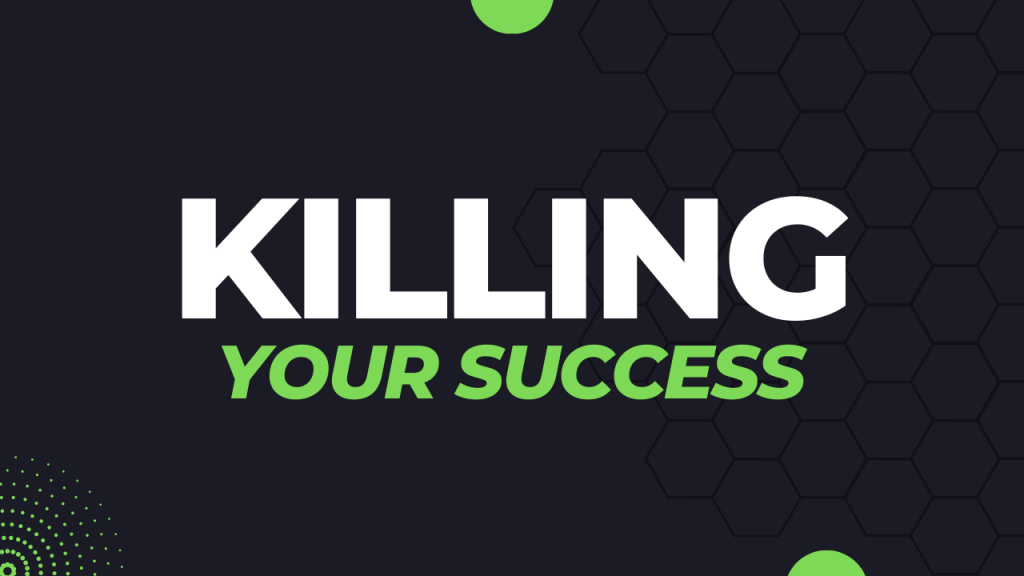Feeling “ready” is a limiting mindset, and I don’t believe in waiting to feel ready before trying something new. Maybe even something life-changing.
Waiting until we are ready is a procrastination tactic disguised as something healthy for most of us.
After all, we don’t want to get in over our heads, do we?
Consider this: Maybe getting in over our heads is what we need.
There is something truly magical about diving in before feeling prepared for it. It’s invigorating. And often, it’s how we learn the most about ourselves and what we are truly capable of.
You’ll never start the journey if you wait for all the lights to be green.
The Business That Failed
About 15 years ago, my dream was to start a business. At the time, I was working a full-time job. The 9 to 5 was fine, but I wanted something more. I wanted to try my hand at entrepreneurship.
And naturally, I started doubting myself by asking questions like:
- Do I have the time for this?
- Will starting a business stress me out?
- Isn’t starting a business hard?
- Maybe this isn’t the right time to do this?
Question after question, my mind was systematically keeping me from jumping in. All those questions seemed reasonable. But our minds have a clever way of keeping us squarely inside our comfort zones.
Our minds like comfort. They like routine. Anything that threatens that comfort and those routines is the enemy. And, we must stop enemies.
My mind was playing mind games with me.
To accomplish big things, it’s our job to push through those limiting beliefs (those mind games) by diving in and getting started.
Somehow, I did push through.
A few weeks later, a few friends and I started the business.
We spent nights and weekends building up the company from scratch for months. We all worked full-time jobs. After the 9 to 5 workday, we’d convene and work until 1 or 2 am almost every night.
Each Saturday, we would work. Most Sundays, too. It was exhausting. It wasn’t fun and required a hell of a lot of work.
We poured our hearts and souls into building our software product for about five months. We even met with several customers and demoed the software for them. The feedback we got was great.
It was gaining steam.
Ready. Set. Fail.
Here’s a plot twist that you didn’t see coming.
You probably thought I would describe our new business as wildly successful, right? Thriving. Lots of money. Thousands of customers. All that time we spent building up this little enterprise paid off.
Right?
Wrong. The business never got off the ground.
Life got in the way. It failed.
But you know what? That’s all part of it. Though the business failed, we learned more about ourselves than we did over the past ten years working a 9 to 5 job. Trying new things makes us stronger people, even if we fail.
Fact: You will fail. It’s a part of life.
Another fact: Failures are how we learn.
“But Steve, if you waited until you were ready, your business may not have failed.”
If I waited until I was ready, I never would have started in the first place. And, I never would have learned what I could do.
None of this would have happened.
Learning from your failures beats regretting not trying.
That’s the point of not waiting until you are ready.
It’s not magic. Just diving in doesn’t mean you WILL be successful.
But it does mean you’ll learn powerful things about yourself, and that knowledge will make you a stronger, wiser, and more confident person.
Every time.
The ‘Just Start’ Checklist
Waiting is the opposite of progress. It’s debilitating.
The cure to waiting is to start. Just start. But there’s a smart way to start something big even if you don’t feel like you’re ready.
The ‘Just Start’ checklist:
- Make a list of your major goals (things you are afraid to start)
- Prioritize the list so the most important goal is at the top
- Break down each goal into two or three sub-components (the steps to achieving the goal)
- Then, write down the “worst-case” scenario for each goal — if you fail at the goal, what’s the worst thing that will happen?
- Answer this question: Would you regret not trying?
The last two points are important elements of this equation. Because when we think about it, the worst-case scenario probably isn’t all that bad.
For instance, the worst-case scenario with the business I tried (and failed) to start was time. I spent a lot of time building something that didn’t work.
But, so what?
I am still alive. And I learned a ton about myself along the way.
Once you decide that you want to do something important, chances are the worst-case scenario of failing isn’t that bad.
Lastly, I would have regretted not trying. To this day, I would probably still wonder about that business idea and whether it had legs (it did). Regrets are powerful feelings that we should make every effort to avoid.
If the worst-case scenario isn’t bad, and you would regret not starting, then guess what? That’s exactly when you know it’s time to start.
So, make your own ‘Just Start’ checklist. Write down a few of your major goals. They might include starting a business, writing a book, or taking a sabbatical so you can spend a year living in Antarctica.
Then, write down the worst-case scenario with each and ask yourself if you would regret not trying.
If you’re like me, you’ll find the worst-case scenario isn’t all that bad. Then, you can begin the fun process of fulfilling that goal.
You got this.
Chat with you next week!



